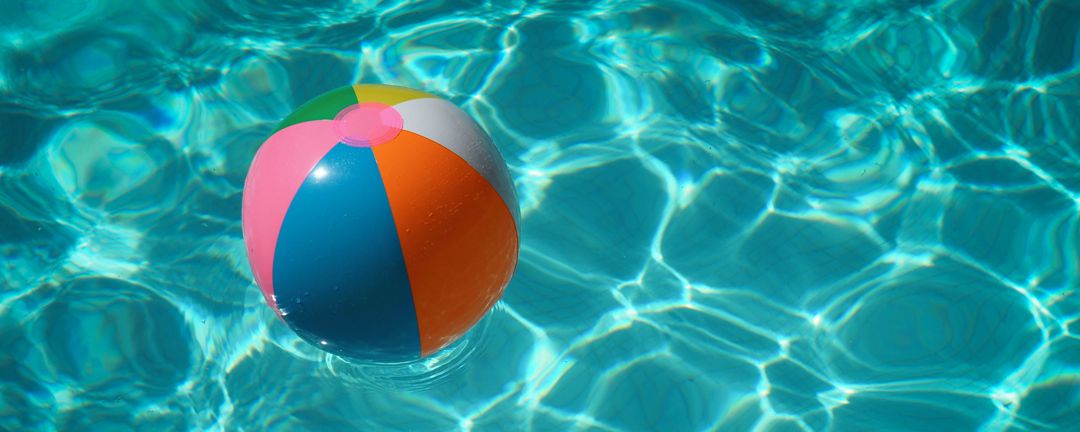
The season of relaxing is officially here! Time to kick off our shoes and grab our beach towels. Even though our brains are in vacation mode, it is still important to be mindful of the environment. There is nothing better than hanging out with your loved ones under the sun while being environmentally conscious. Here are 6 ways you can have a blast this summer while preserving our planet:
Reef Friendly Sunscreen
Summertime means more sunshine, and more sunshine means more sunscreen. It is so important that we take care of our skin by applying sunscreen every two hours when outdoors. Sunscreen can prevent skin cancer, wrinkles, dark spots, and if you choose your sunscreen wisely, it can help prevent coral reef damage. Most sunscreens contain oxybenzone, which is toxic for reefs leading to coral bleaching, or loss of other vital purposes. When applying sunscreen you might wait around 15 minutes for the sunscreen to absorb, but when it has oxybenzone you are putting yourself at risk for absorbing hormone disruptors. However, the oils from the sunscreen can still shed off into the oceans leading to coral reef damage. You might even consider, “What if I don’t live near the ocean? What harm does that do?”, however, because you are absorbing this chemical, Oxybenzone can make its way to our oceans through urine, or even through washing the sunscreen off in the shower. Oxybenzone is so toxic that the governor of Hawaii signed a bill last month to ban selling sunscreens containing this chemical. Thankfully, the Environmental Working Group has created a list of safe sunscreens to use in 2021!
Buy Organic Foods
We are often told that we should be buying organic foods and here’s why; Not only does conventionally grown produce often contain pesticides, hormones, antibiotics, and toxic food chemicals but they emit 55% more greenhouse gasses and require 40% more energy. When you chose “conventionally grown” food over organic, you are putting yourself at risk for obesity, diabetes, cancer, antibiotic-resistant infections and heart disease. Organic means that the food was produced through methods that “integrate cultural, biological and mechanical practices that foster cycling of resources, promote biological balance, and conserve biodiversity.” Organic foods also contain vitamins, antioxidants, and trace minerals which are all required to get nutritional value. When consumers buy organic foods over conventionally grown food we are sending the message that traditional farming practices are not only beneficial to our bodies but our environment as well.
Using Real Plates and Silverware – Not the Plastic Stuff
When picnicking this summer, strive to use reusable cutlery and plates to enjoy your organic foods. While using a plastic fork and knife may seem harmless, it has tremendous effects on our wildlife. Not only do the microplastics from the cutlery end up in our waterways, but many animals will mistake forks and knives for food. The plastic can cause an animal to either choke or later clog their stomach and due to the natural food chain, the plastic ends up in our bodies. However, this is not the only way plastic cutlery affects our ecosystem. Producing plastic emits a high amount of carbon, which then are disposed of in landfills releasing carcinogenic into our atmosphere, or contributing to climate change. By using reusable cutlery we can enjoy our meals in the sun while being environmentally conscious.
Skipping Straws
Cutting plastic straws out of your daily use is one of the simplest ways to be more environmentally conscious. Much like the plastic cutlery wildlife often consumes plastic straws mistakenly introducing plastic to the food chain. One metal straw is the equivalent to using 540 plastic straws, yet everywhere you go, you are offered a plastic straw with your drink. Nivedita Biyani explains that “The energy (in calories) it took to mine the oil, manufacture, produce and transport that piece of plastic to your lips, equates to more calories than you burned sipping water out of it, through your lips – all for a time period of about 16 seconds” in her MGW blog on plastic straws. However, you are often given a straw with your drink whether you asked for it or not. Next time you are offered a straw, remember that 80-90 marine debris is plastic and politely decline.
Biodegradable or Eco-Friendly Bathing Suit Choices
Biodegradable textiles may look similar to your average textile but are more ethically produced. This means that the bathing suit can biodegrade within 3-5 years, rather than filling our landfills up with more plastic that takes about 40-200 years to decompose. When washing suits with average textiles like polyester and nylon, micro-plastics are shed into our waterways, however, this is not the case for bio-degradable textiles. Biodegradable swimsuits also prevent bacterial and fungal growth onto the material, rather it turns the back into biogas.
Indigo Wild has a wide collection of biodegradable suits for women. United by Blue is an eco-friendly men’s swimsuit brand made of recycled materials and with each purchase will remove one pound of trash from our waterways. These products are a little more pricey but make a big impact on the environment.
Energy-Efficient Air Conditioning Use
While air conditioning is essential during the summer heat, it is important we understand how to use our AC efficiently. At the beginning of the summer when the humidity isn’t bad, if possible, use a swamp cooler instead of an air conditioner. Not only are swamp coolers less expensive than air conditioning but they only use water rather than refrigerant or cooling chemicals that are later turned into CO2. Once it gets to a pretty high humidity where the swamp cooler is no longer effective, use air conditioning strategically. Make sure the air filter is clean, and that there is nothing blocking your AC unit (such as bushes or garbage). Only turn on the AC when someone is in the house, or if you are a pet owner leave it on for your furry friends but make sure it is at a reasonable temperature, try even raising the thermostat a few degrees this year. Fans are also a good alternative to air conditioning, however you still need to be mindful of turning them on and off when you leave the room. Lakes, oceans, and rivers are also a great way to stay cool while spending some time outdoors.

Makynna Keefe is a Senior at the University of Arizona interning for Mrs. Green’s World. Growing up in Orange County, Makynna’s desire to help the climate was instilled in her through monthly recycling trips, donating clothes rather than tossing them, and beach clean-ups. After leaving home, Makynna researched ways to live sustainably while living on her own. Now Makynna is a research assistant for Mrs. Green’s second book. Makynna’s goal is to keep learning, as well as spreading awareness on how we can all take simple steps to live sustainably.